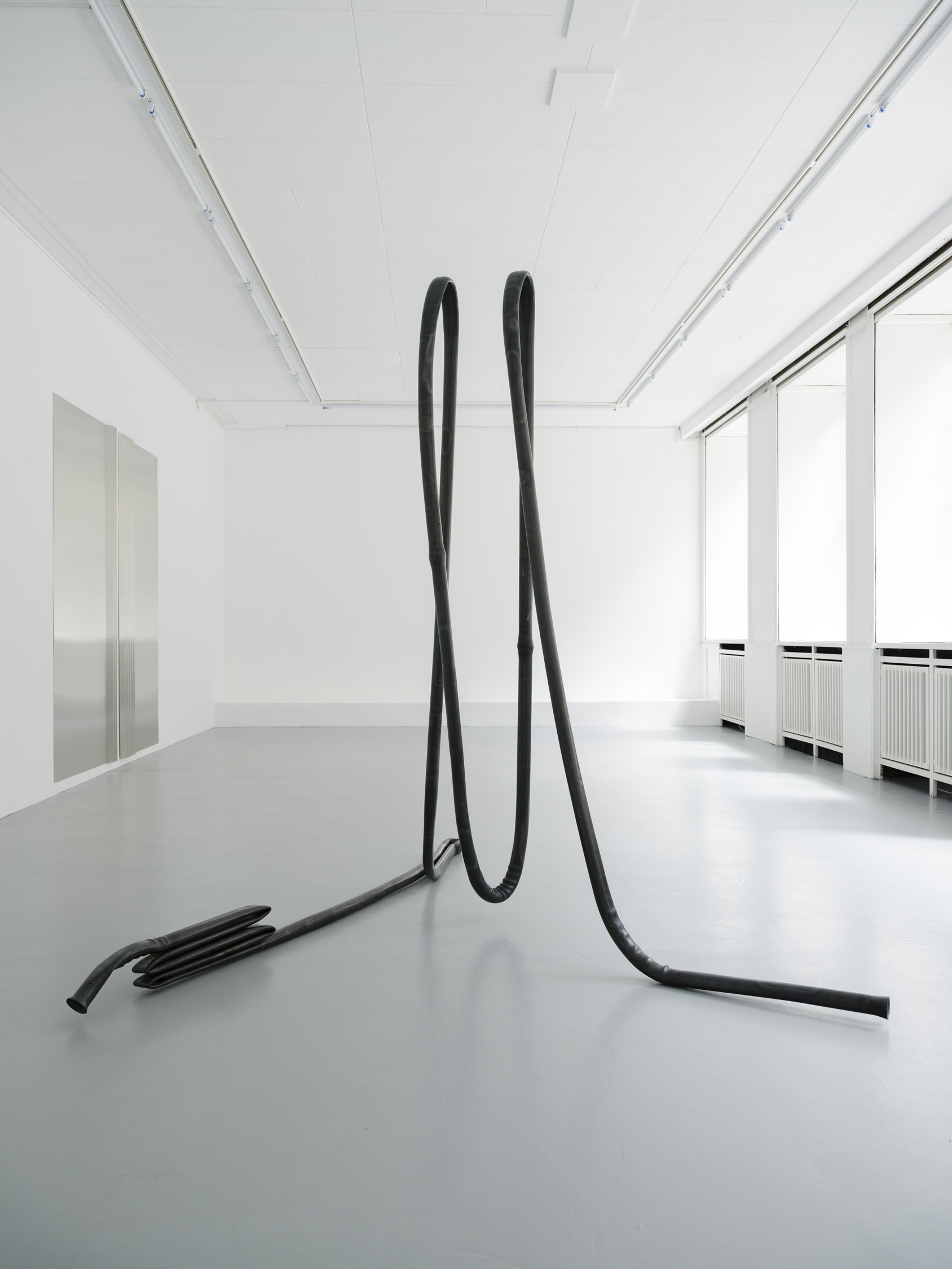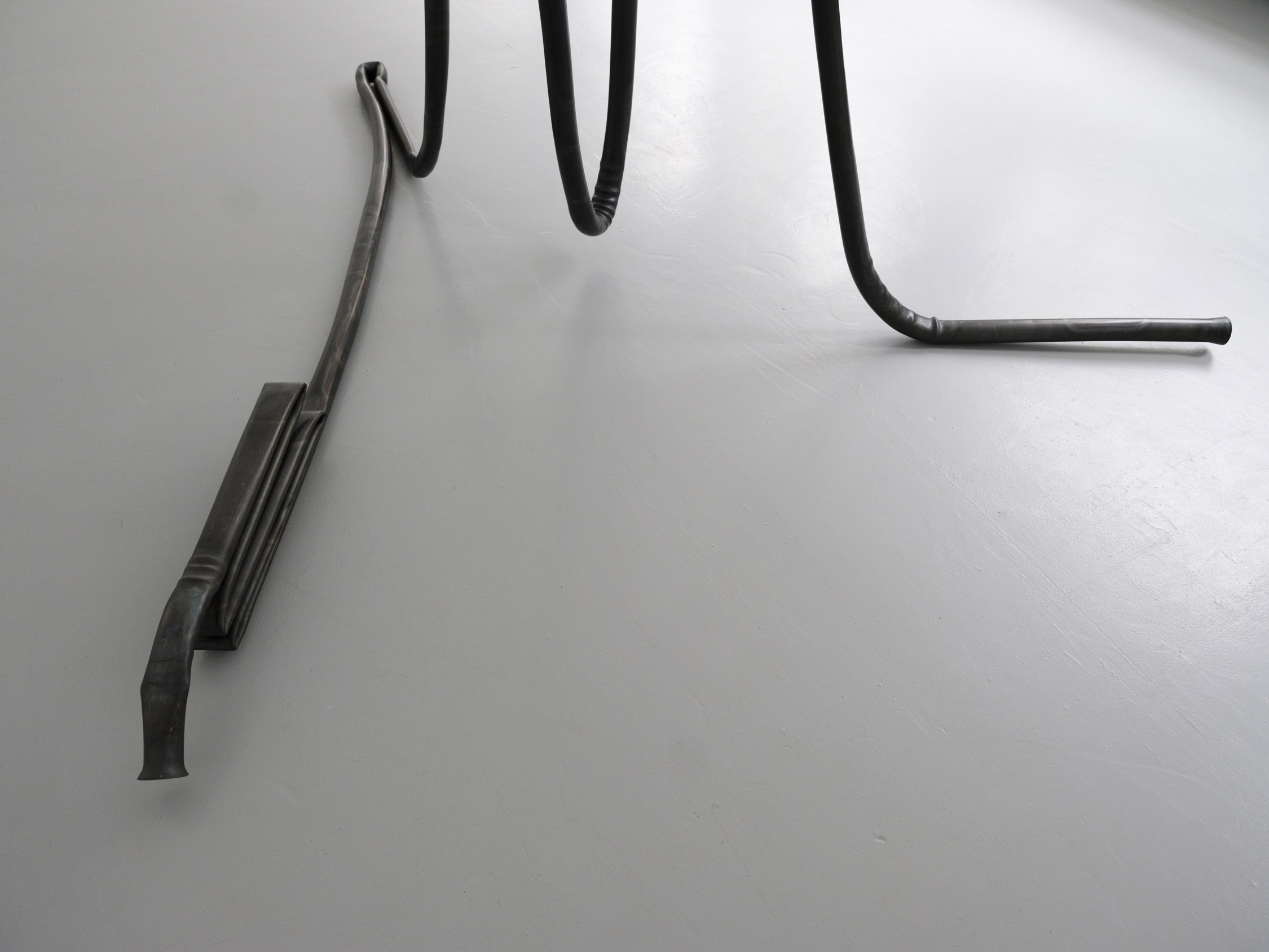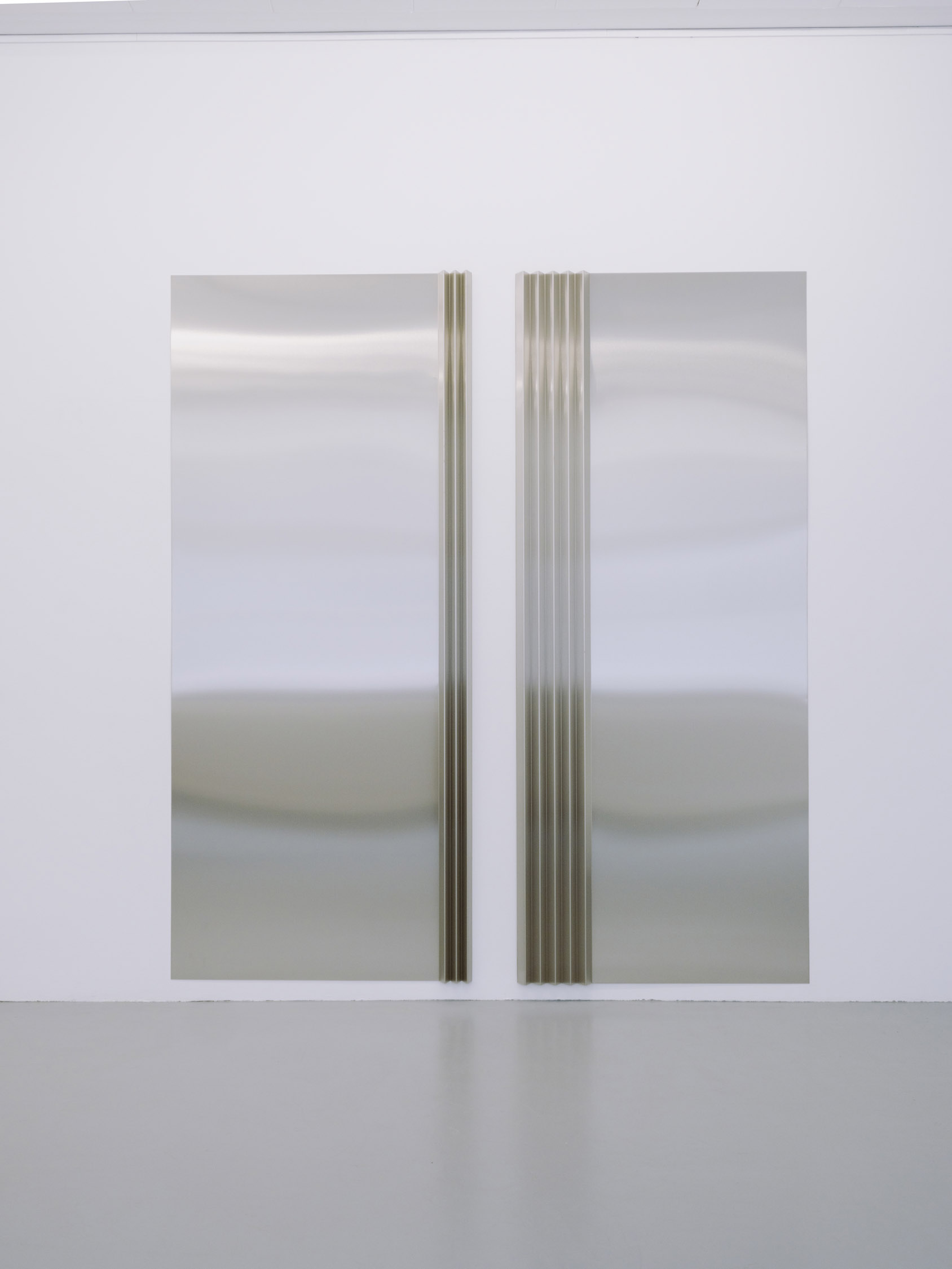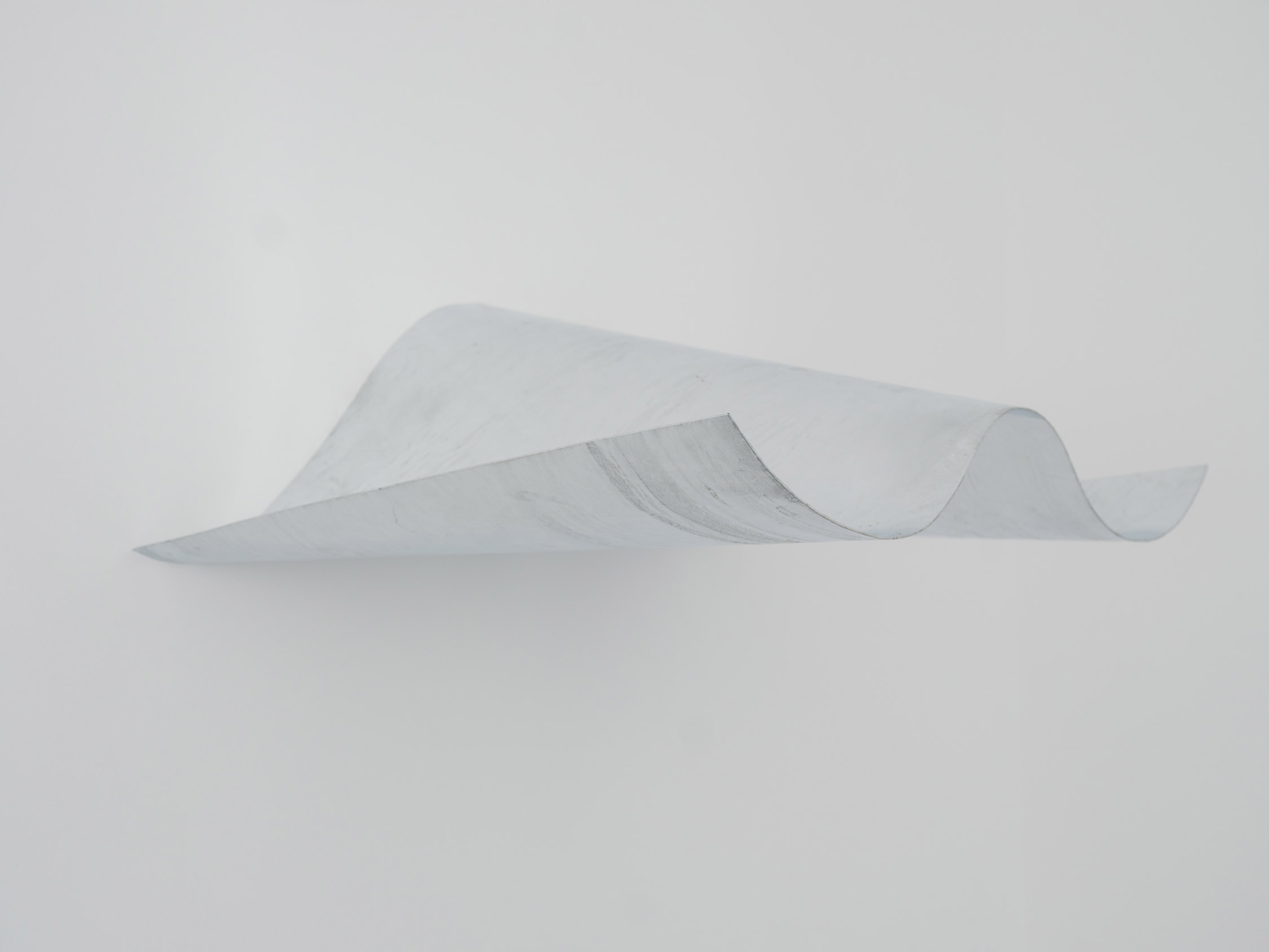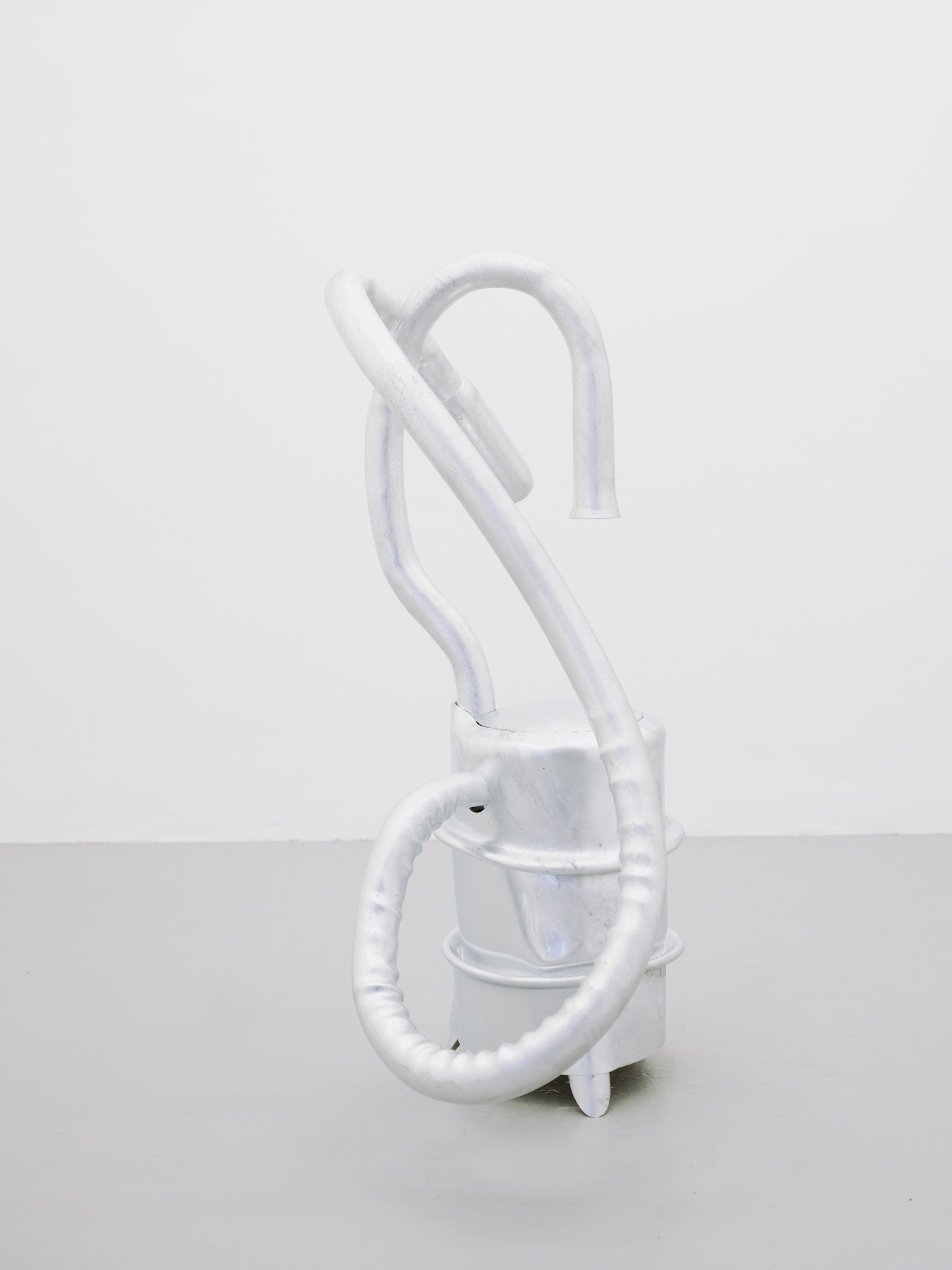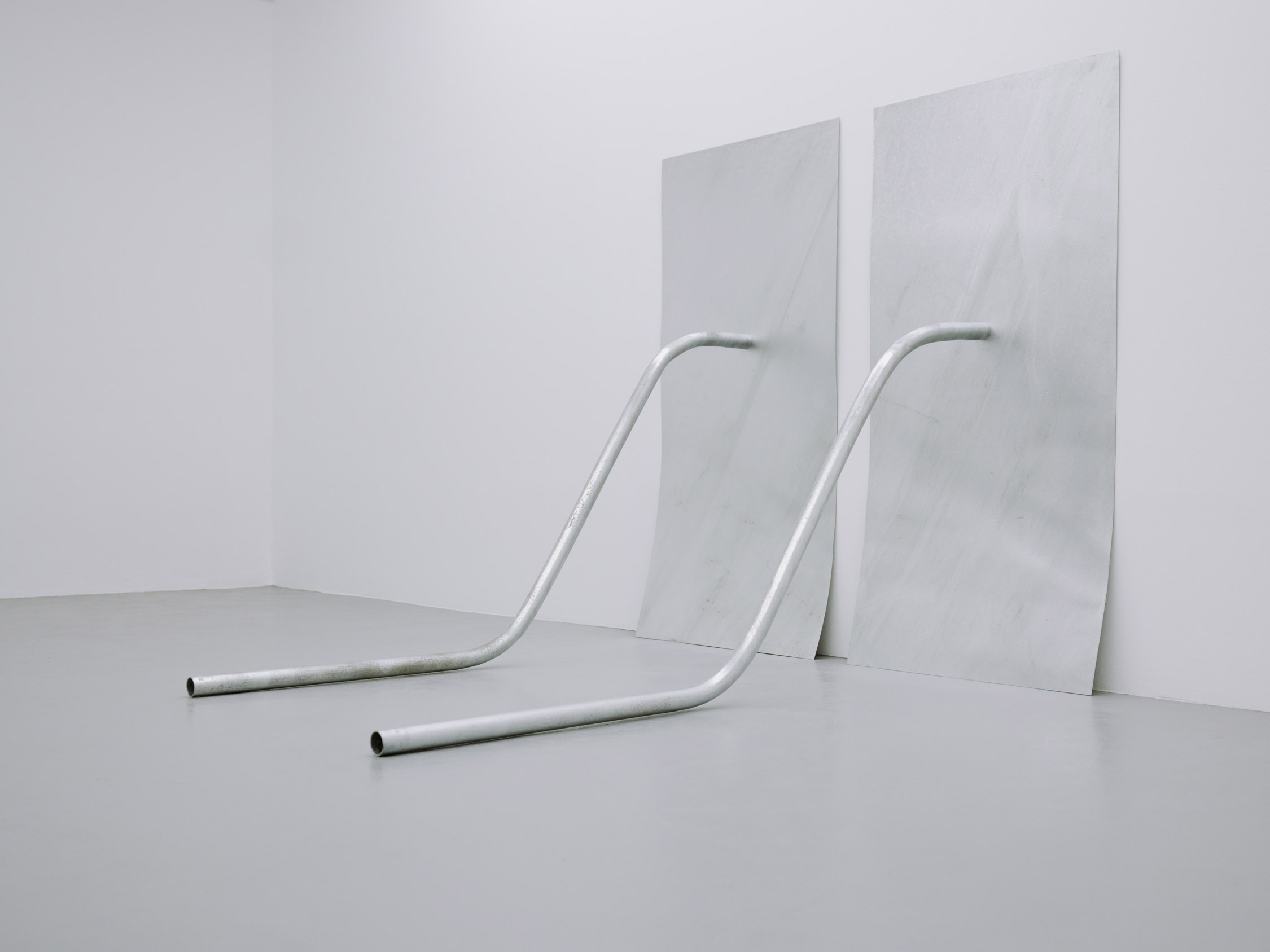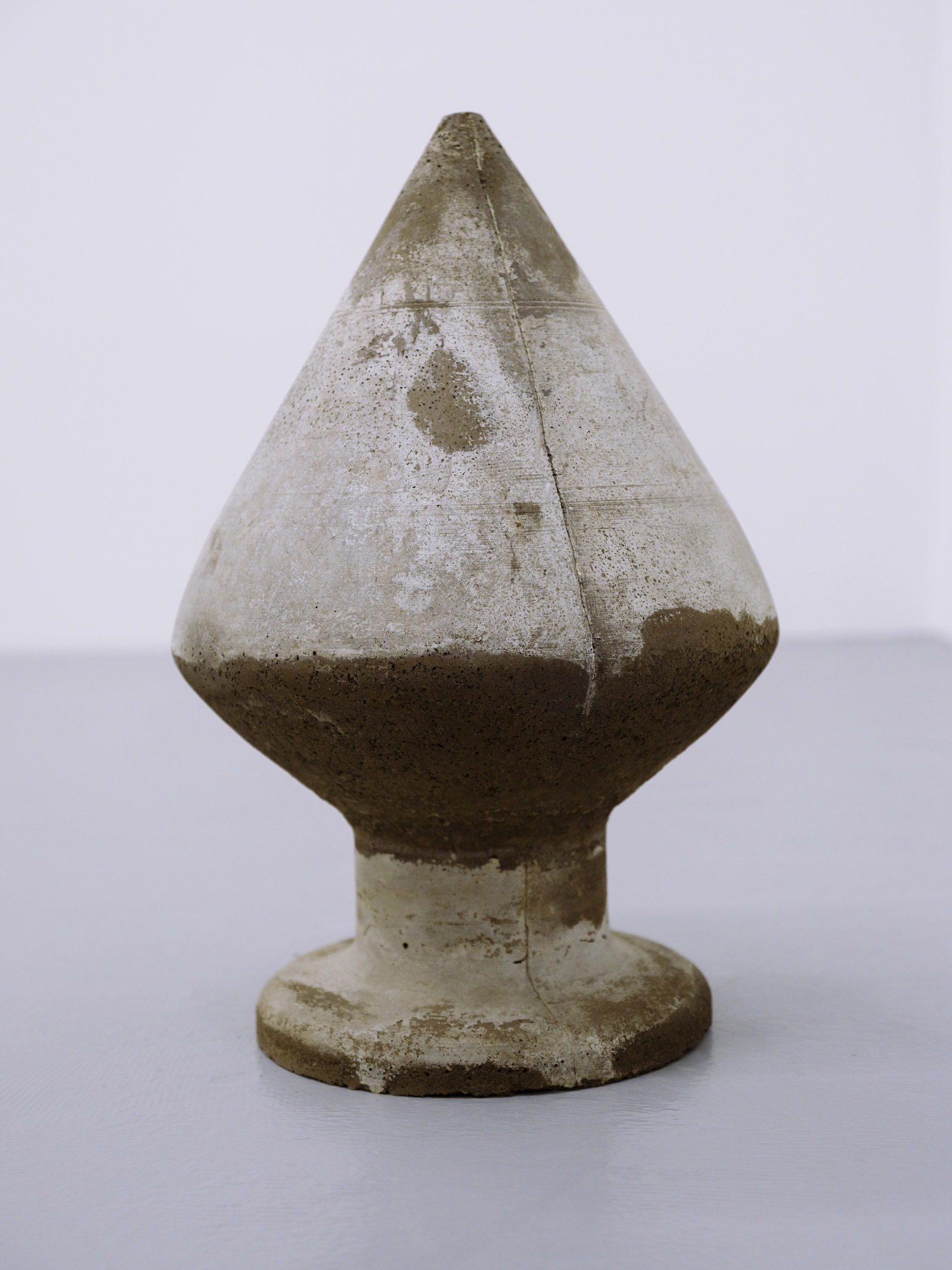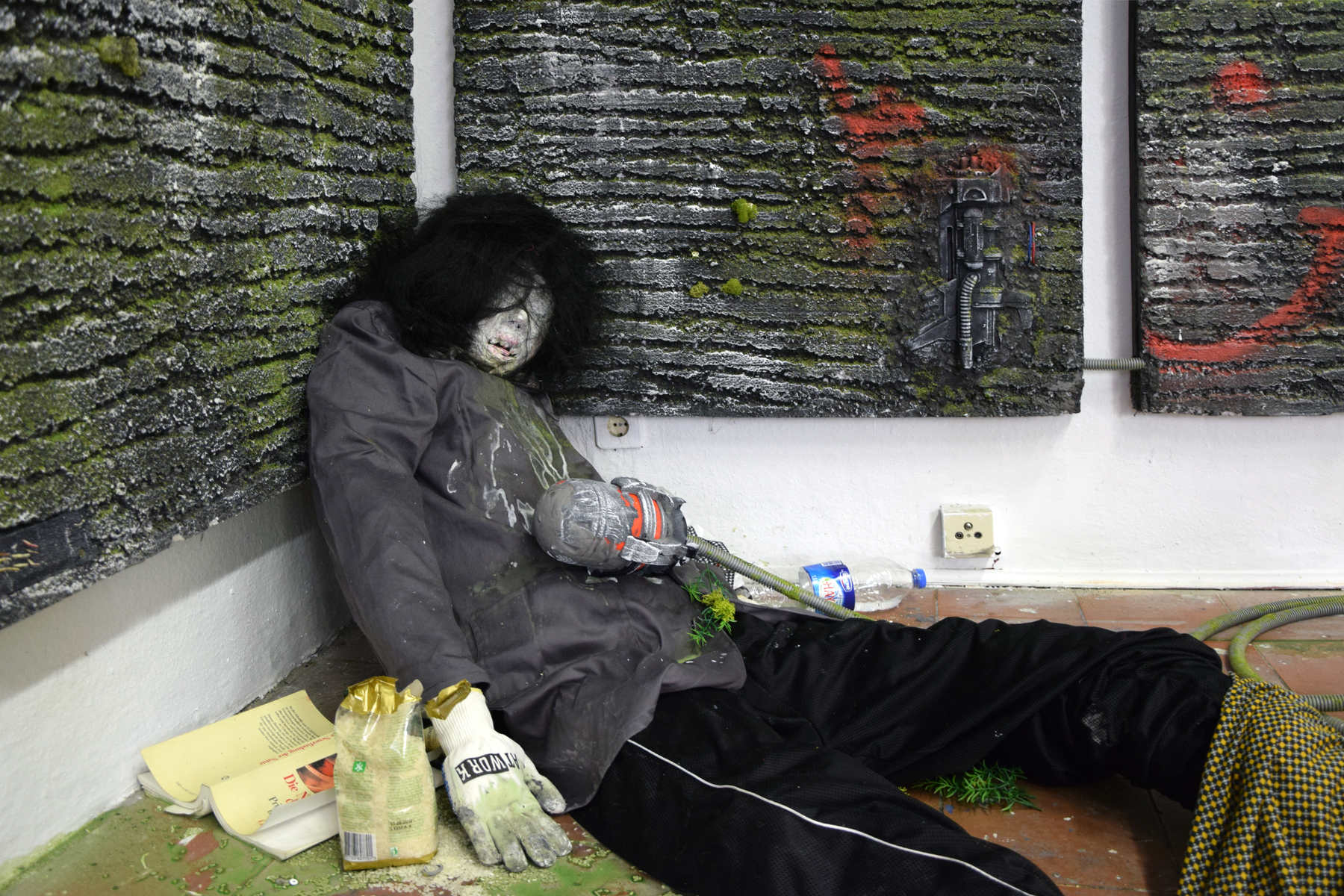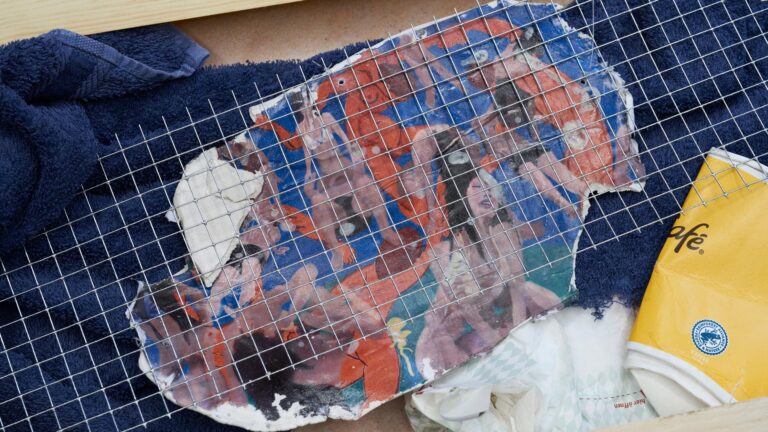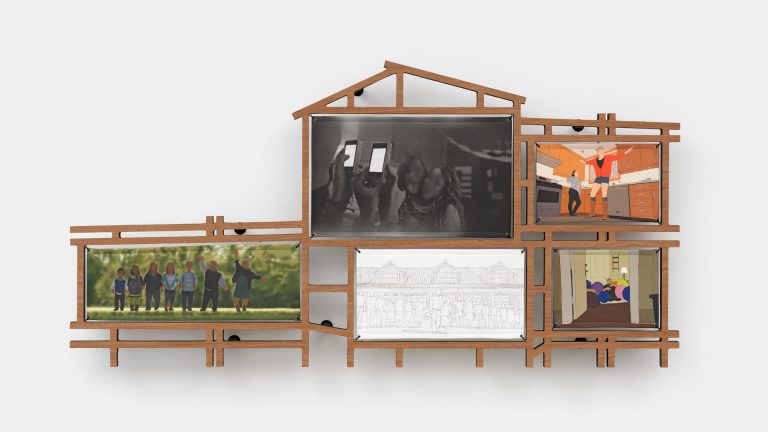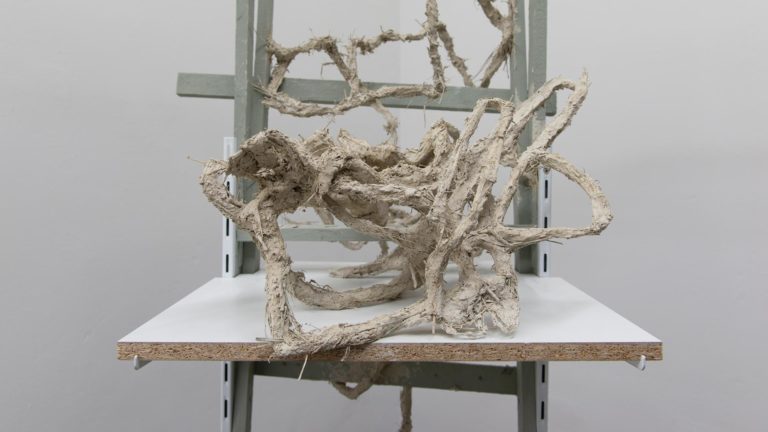Artist: Toni Schmale
Exhibition title: opferblech
Venue: basis, Frankfurt, Germany
Date: May 17 – July 21, 2024
Photography: all images copyright and courtesy of the artist and basis, Frankfurt
Can objects help in learning to perceive bodies differently?
This is one of the questions that Toni Schmale’s extensive solo exhibition at basis e.V. ex-plores. A selection of existing artworks and new works produced espe-cially for the exhibition offer visitors the opportunity to reflect on social and gendered processes of formation and transition.
Ultimately, it is up to the viewer to decide what the large-format steel sculptures reveal about themselves and us. As highly aesthetic and technically perfected forms, they can be equally understood as reflexive elements that confront the viewer with their own physicality.
The title of the exhibition, that can be translated as ‚sacrificial panel‘, refers to a metal sheet used in the steel industry to prevent unwanted pressure marks and deformations that can arise during the bending or moulding process of a steel object. When placed between the press and the object being produced, all of the knocks and bumps, dents and edges, the collateral damage, in other words, that occurs during the moulding process are inscribed into the sheet. In this way, it is ‘sacrificed’ and acquires a new and individual form that sim-ultaneously attests to the transition from material to an industrial functional product. The practice of using a sacrificial sheet metal is a prerequisite for the production of an appar-ently perfect form.
The exhibition opferblech is dedicated to these objects, which are both hyper-functional and deformed into dysfunctionality. Although her works cite practical forms, they actively refuse to take on one. The sculptures go through a seemin-gly constant process of transition: they transform material qualities by transla-ting soft forms into hard material (schlauch #6), reversing proportions (bend over your boyfriend), oscillating between visibility and invisibility (circlusion kleine metallarbeit) or transforming everyday objects into dysfunctional fetish objects (sucker #5). Through her treatment of the standardised steel tubes, their bending and recomposition, the fragility and vulnerability in every object and material, just as it is in every body, becomes manifest.
Such a process of material transition can also be perceived in the way the works are experi-enced. Sidestepping a directly legible form, the sculptures trigger physical relationships with their viewers. What is discerned and decoded de-pends on the viewer. The sculptures offer a shift and complication in represen-tative logics pertaining to corporeality and sexuality. By deforming and rewriting existing categories such as hard and soft, inside and outside, visible and invisible, they emphasise the relational quality of these states and reveal the process-ori-ented nature of these supposedly dichotomous categories. The works therefore operate in a field of feminist criticism of normative concepts of the body, binary gender orders and heteronormativity.
With her abstract formal language, Toni Schmale contributes to unburdening the represen-tation of real and marginalised bodies, which are otherwise at the centre of social debates about gender identities. In her works, it becomes evi-dent that material, form and content are inseparable from one another, yet they are mutually synergistic. Her contradictory sculptural forms reject any simplistic reading and representative logic of queer art, while broadening established no-tions of sculptural practice.
